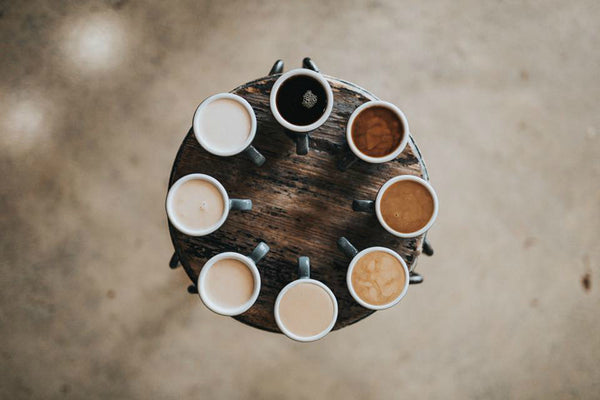// By Alexandra Balcom

If you’re like the gals at Society B, you start your day with two words: Coffee first. Coffee is an essential part of life for millions of people, but not for the reasons you might think. Yes, coffee gives us that boost of caffeine we need to look alive and be alert in the morning. But for 125 million people, coffee is also the source of their livelihood. And when consumers make the simple choice to buy fair trade coffee, those tiny beans can make a huge impact.
In fair trade conditions, coffee beans are planted and harvested by hand, often in secluded locations, such as Central and South America and Ethiopia. Once beans are harvested by small-scale family farmers, they can then sell the beans to coffee importers with a fair trade agreement that stabilizes the coffee-selling process.

We don’t often think about where coffee comes from or how it was made, but perhaps we should. Fair trade coffee generates so much good for society. Just by choosing our morning Joe a little more thoughtfully, we have the power to reduce poverty and provide sustainable economic growth for millions of people around the globe.
So before you reach for you regular cup of coffee, consider the multiple benefits of fair trade coffee:
Fair trade coffee promotes livable wages, community development, health, and education for millions of coffee growers and their communities.

Fortunately, fair trade coffee is easier to find than you may think, and there are many accessible fair trade options. At the grocery store, look for Pura Vida Coffee or Allegro Coffee. Online, check out Equal Exchange or Land of a Thousand Hills Coffee. For those who use K-cups, Green Mountain Coffee makes fair trade options for your Keurig! And when you’re at your favorite local coffee shop, ask which brews are available with fair trade coffee. (Both Starbucks and Dunkin Donuts have fair trade options!)

Last, check out our favorite coffee-related goods at Society B, which give back to make a difference with every purchase:
 Alexandra is a Boston gal who has relocated to the south. When she isn’t cheering on the New England Patriots, she is spending time with her parents out on the ocean. She enjoys current events, economics, running, and visiting her brother any chance she gets. At age 21, the Harry Potter series is still her favorite read.
Alexandra is a Boston gal who has relocated to the south. When she isn’t cheering on the New England Patriots, she is spending time with her parents out on the ocean. She enjoys current events, economics, running, and visiting her brother any chance she gets. At age 21, the Harry Potter series is still her favorite read.